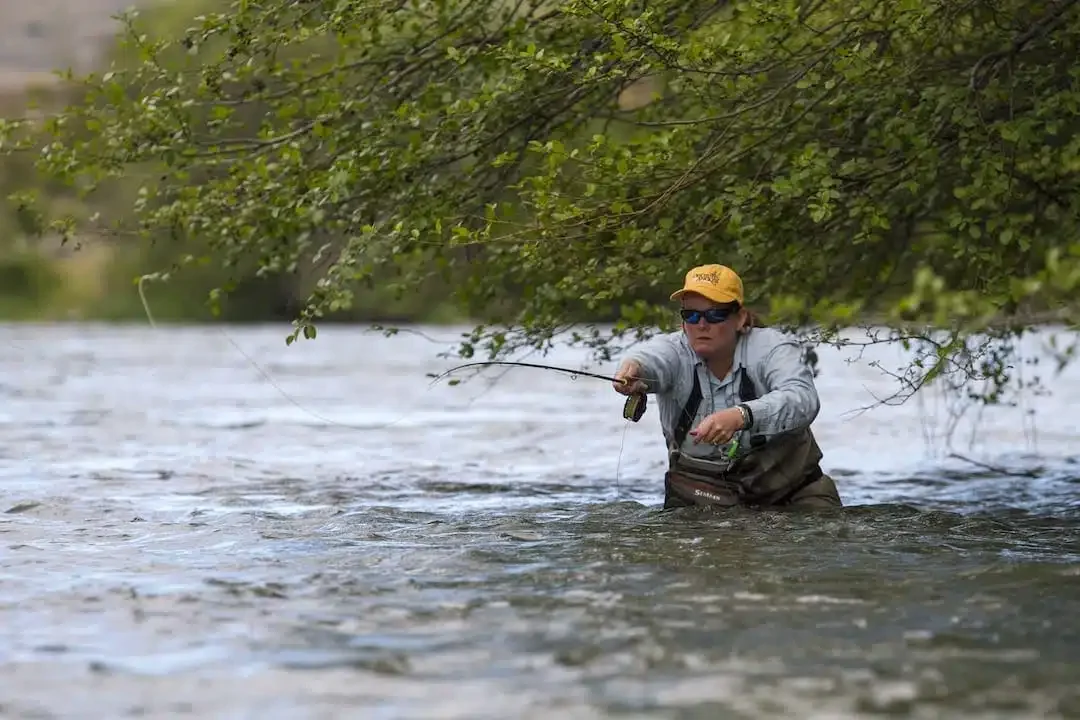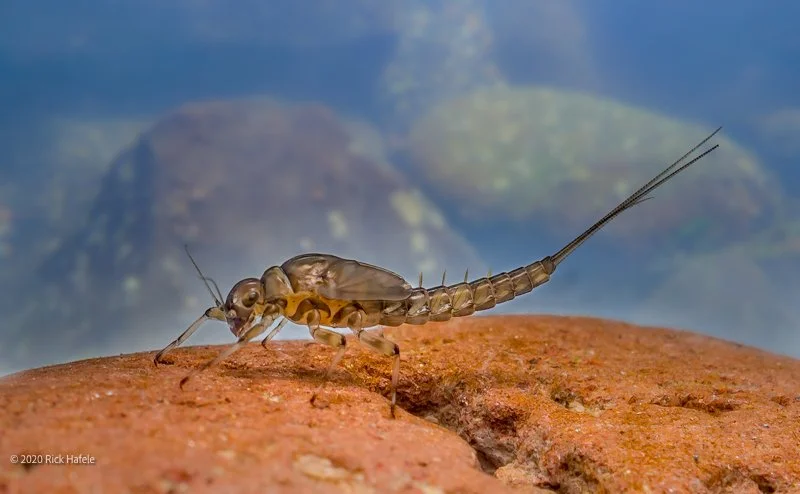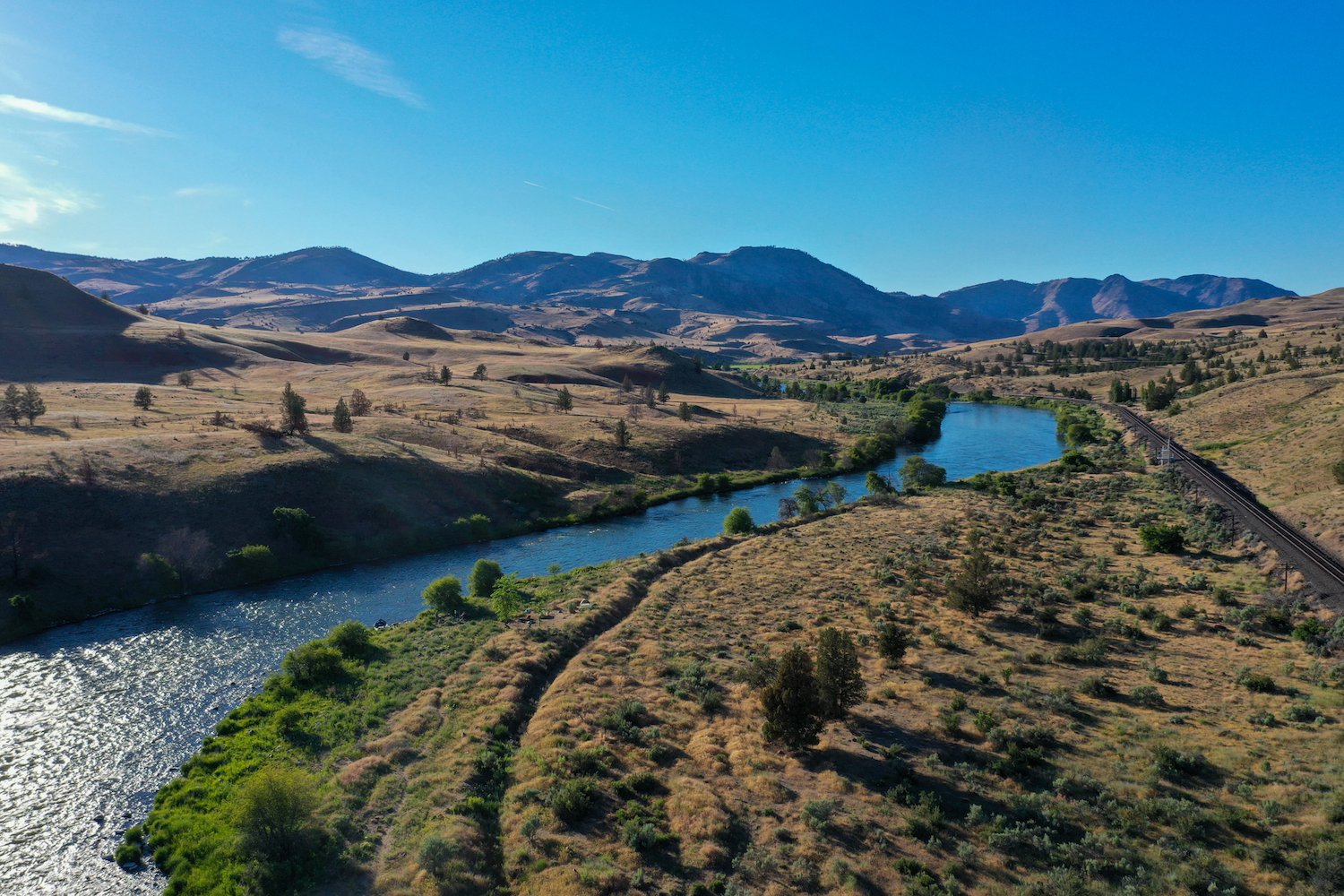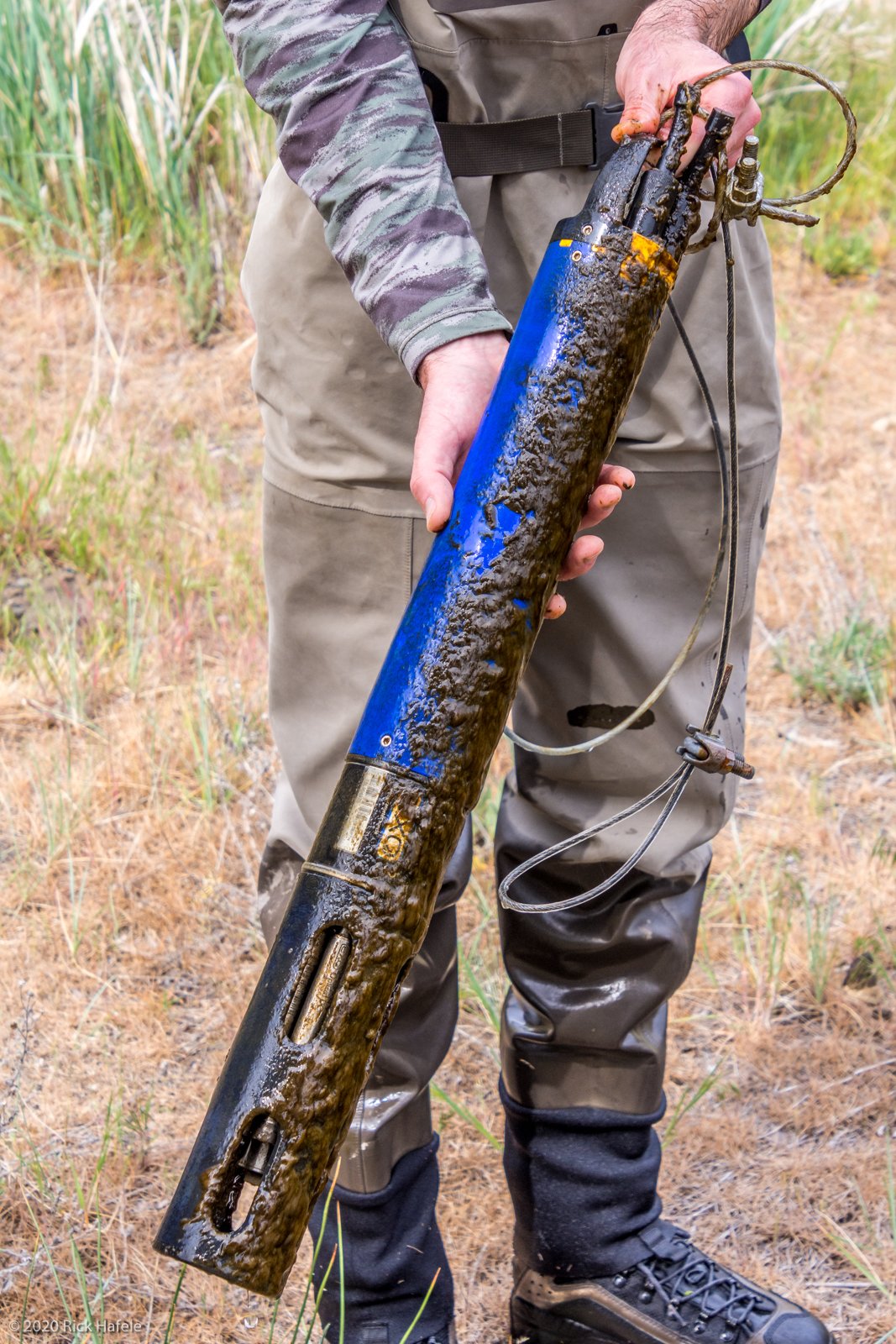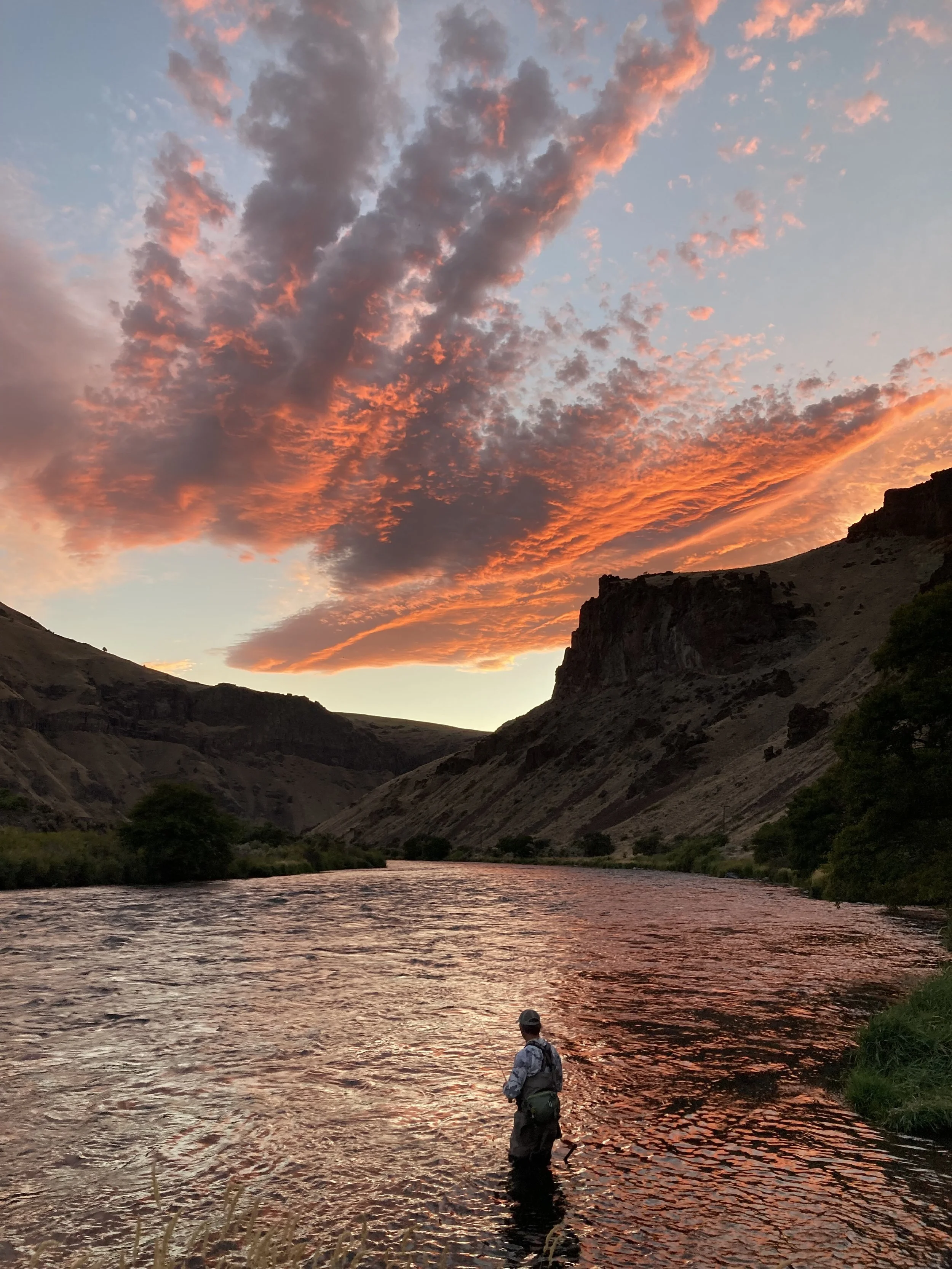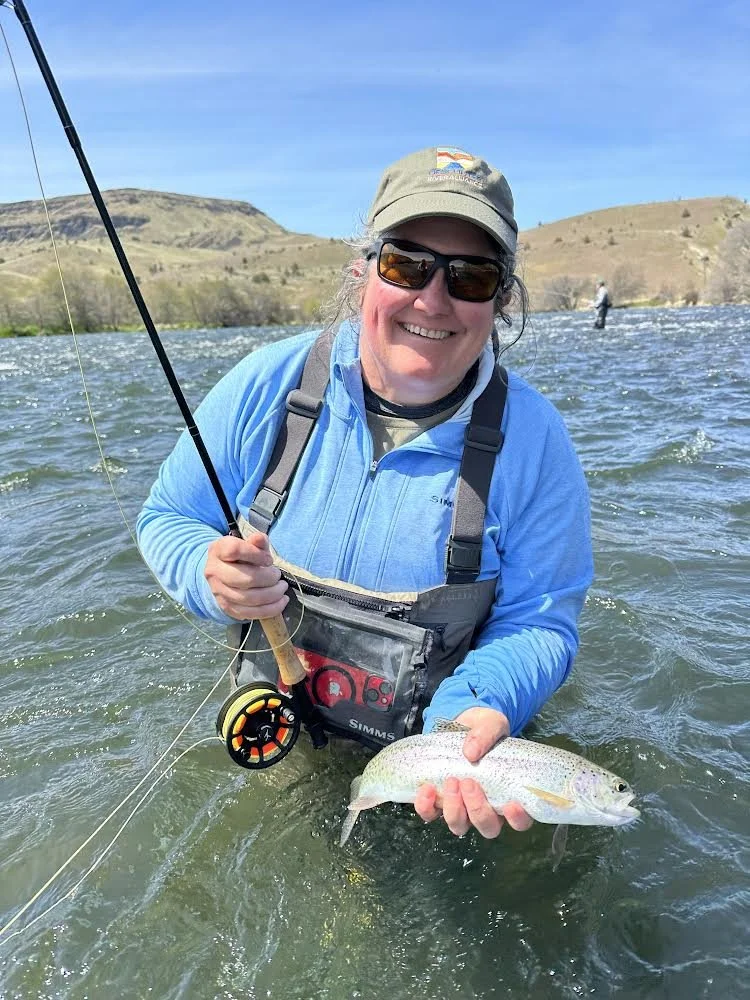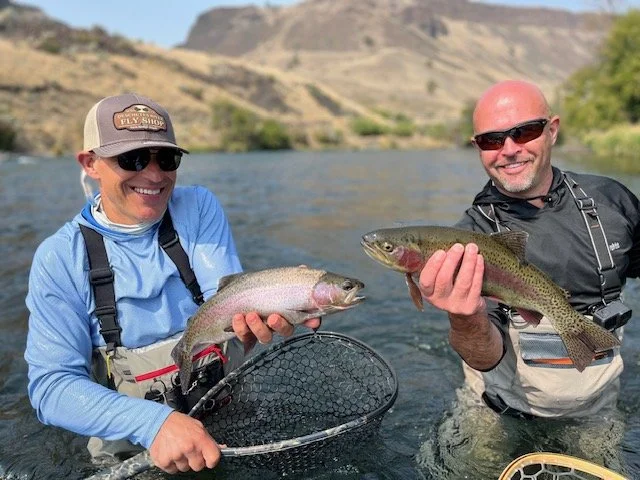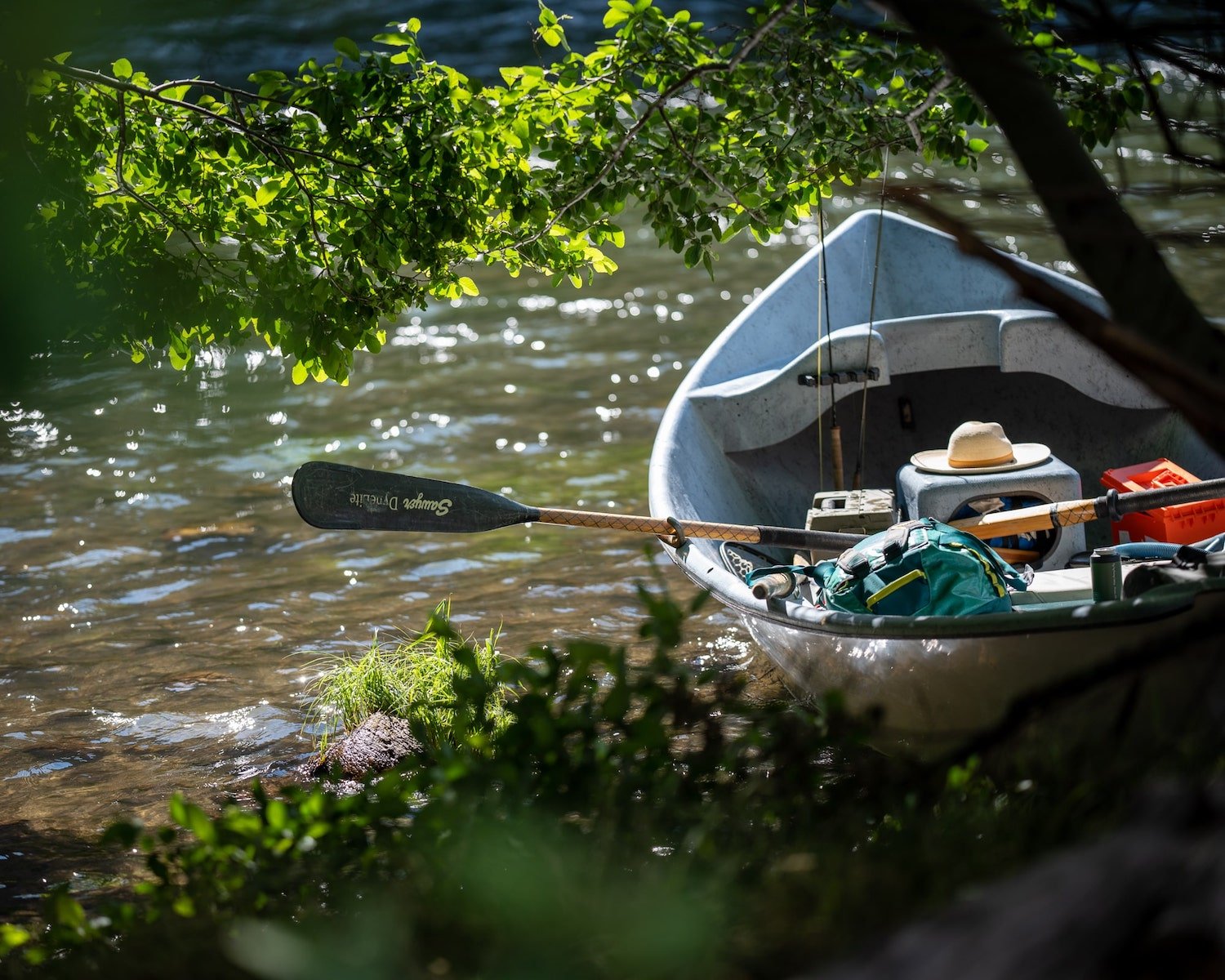A River Runs Through It: Imperial River Company
The Imperial treatment: a day of guided rafting doesn’t necessarily mean roughing it.
Actively Relaxing
At Imperial River Company, the motto is “Actively relaxing on the banks of the Deschutes River.” Since 2001, Rob and Susie Miles have owned and operated Imperial under this motto. In its hotel, restaurant, and newly developed RV park, Imperial hosts a myriad of travellers. Many, if not all of Imperial’s guests are drawn by the lure of the Deschutes River, who come to raft, fish, and simply enjoy the river. Located in Maupin, Oregon, Imperial rests on the banks of the Deschutes as it flows through the heart of the small town. Rob Miles says, “Without the river, our lawn would be at the edge of the Earth, and just fall off into nothingness.”
Both literally and metaphorically, he’s spot on. Imperial boasts a riverfront lawn that provides everyone from travellers to locals a space to enjoy the river. On many hot summer nights, the Maupin raft guide community convenes at Imperial’s sand volleyball court for some friendly competition. Imperial, with its own whitewater rafting operations, contributes a few guides to the mix. Throughout every facet of the company, the Deschutes provides life and vitality, as people arrive from far and wide to visit its Cascade Mountain derived waters.
Slipping Hazard
Yet the Deschutes isn’t the river it should be. All rivers have a natural temperature regimen that native aquatic plants and animals adapt to expect. So when water temperatures change unnaturally, aquatic life can be negatively affected. “We’ve seen the ecosystem change, for sure,” says Susie Miles, who states that the warmer water and excess nutrients have allowed excess algae to grow over rocks, making them slippery. Susie reports that some fisherman don’t want to fish the Deschutes anymore because the rocks have become too slippery to be safe. This slipping hazard is largely due to the mismanagement of the Selective Water Withdrawal Tower at the reregulating dam upstream. Rather than releasing cold water from the bottom of the reservoir behind the dam, the SWW Tower elects to release warmer, nutrient laden water from the reservoir’s surface.
No Fishermen Without Fish
Another component of the Deschutes’ change in temperature is its impact on fish populations. As steelhead travel up the Columbia River from the ocean, they are less likely to return to the Deschutes to spawn if its waters are too warm. “It’s negatively impacting our guests. We used to have a really strong steelhead run and that hasn’t happened for years,” Susie explains. “We definitely have guests who used to be regular, annual customers and they are going to other rivers.”
Along with declines in anadromous populations, there has been an increase in warm-water fish, such as small-mouth bass. Bass, predominantly a lake fish, have been reported in the Deschutes towards the mouth of the river as it flows into the Columbia. The presence of bass in a world-famous trout fishing river is extremely telling of the changing conditions and the need for re-evaluated management of the SWW Tower.
Without a healthy river, the economic landscape for Imperial River Company, and other businesses in Maupin, will change. At Imperial, Rob and Susie hope to be able to continue providing opportunities for people to actively relax along the banks of the cold and clear Deschutes River.
More From The Blog
Subscribe the the DRA Newsletter
The Deschutes River Alliance is your focused voice to protect the lower Deschutes River, its cold water flows and the fish and wildlife that are sustained by them. We send regular emails with important data and news about the lower Deschutes River. We will not sell your contact information to others.
How to Support the DRA
Everyone wants clean, healthy water in the Deschutes River. Oregonians cherish our clean and healthy waterways to provide drinking water, wildlife habitat and recreational activities. The lower Deschutes River is a federally designated Wild & Scenic River, and a national treasure. It must be protected for the environmental and economic health of Central Oregon. By working together we can return the lower Deschutes River to full health.


